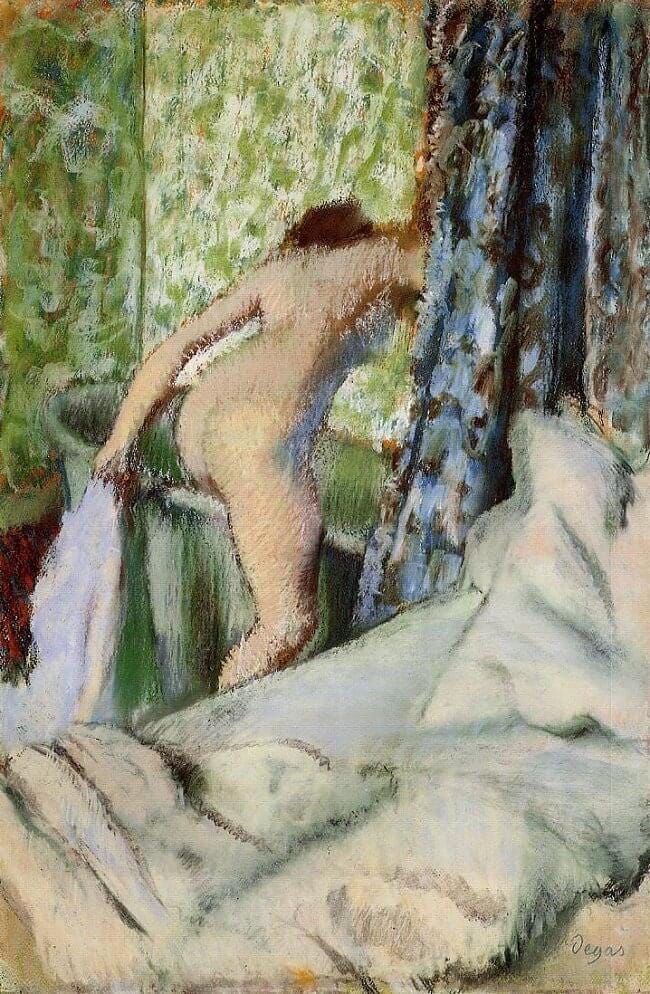Ritual Resilience - Thriving in the Age of Automation
The rituals you hold close are under threat
The Role of Ritual
We hear the word "ritual" and think of the supernatural, the occult, the religious, the fanatic, the sensational, but rituals are a part of every day life. Rituals are symbolic, structured and oftentimes functional activities marked with specific intention and purpose. They're effective too. They reinforce social bonds, create personal order, serve as markers of progress in one's life and create a sense of predictability.
Rituals can be small or large. Think of what you do each morning to "awaken". Regardless of your level of celebration of awakening after a night of sleep, you run through the same process, parts of it are functional and some are according to taste. Grand rituals are ones where entire cultures participate or accept as a part of the social fabric. Some, like pilgrimages during medieval Christendom or Hellenistic Greece served to emphasize social cohesion, religious or mythical reinforcement, cultural stability, and personal growth.
While grand rituals are less likely today in the West, we gather, travel, connect and engage with our communities in various ways. Whether it's a Sunday brunch or the Friday happy hour of office culture or the weekend religious service, we interact with each other to add context to other rituals or processes we have in our lives, ones that might involve our careers or hobbies or families.
No matter how utilitarian or logical we try to be, we do things that are only meaningful to us. The routine workout is an action in the ritual for movement and vitality. The morning coffee is an action in the ritual of waking. In this day and age ritual is seen in the digital arena, where the actions we take lead to a greater sense of digital identity and representation.
Whether they are small or large, crucial or inconsequential, rituals help us understand ourselves and they rely on a specific pace and space to operate. The largest threat to ritual is the pace of innovation and rate of impact.
The Fallout of Innovation
Innovation via automation and technological efficiency is rapidly replacing traditional systems we're accustomed to integrating with. The way we communicate, create, reason, work, and play are under threat of change, and while change through innovation is often seen as progress and beneficial to society, we often don't shine a spotlight on what is sacrificed or impacted as a result.
We have become unaware as a society of the things we've lost and how that has affected us. We moved from communicating face-to-face to predominantly via phone call and then eventually to texting. While we are capable of texting more people or updating more of our community via social media, we have largely lost touch with the intimacy involved in meeting with someone in person or face-to-face. There is an awareness there that must be kept sharp. We must hone that sense of balance between intimate, in depth moments with those important to us and the easier, shallower moments we have with others via text or social media.
Many things have changed.
Increased screen time, shifts in work-life balance, different social norms associate with urgency and ability, and increased reliance on technology have changed how we interact and what our routines and processes look like. This leads to a need for different rituals and a reevaluation of our values.
Ritual in the Age of Automation
We need new ways of integrating our tastes, preferences and needs with a rapidly changing reality. We need rituals around the use of technology and rituals around the automation of things in our lives since we'll be presented with options to automate or not. We require rituals that help us limit the encroachment of innovation on parts of our lives we reserve for manual, intimate processes.
Some people are introducing tech-free activities into their lives. Some create rituals around phone or computer breaks. One of the best ways to ease into this need for change is to adjust current rituals for differences and trends you notice are taking hold. For instance, the role of AI in our daily lives is becoming a dominant one. From the apps we use, to the way we search and the way we communicate with each other, AI is becoming increasingly prevalent. This signals a need for a change in ritual and a calibration of our value systems. If you're someone who naturally resists the integration of tech in your life, weigh the costs of not introducing AI into some of your processes and ask yourself if you'd be better off with or without it. If you're someone who actively seeks to integrate with advances, understand the cost of changing continually.
The Automated Age has already begun. Those of us who resist will be at a grave disadvantage integrating with a completely new culture shaped by these advancements in the future, while those who look to understand the forces that affect their lives and meaningfully act in accordance with their values will maintain their sense of agency and sense of identity.
Don't fear change, fear being incapable of it.




Amen. (Coincidentally, I was also just researching the significance of ancient symbols and rituals.)
These habits-whether formal rituals or private routines-form the fabric of our life. And given how ancient some of them are, it's astonishing how drastically they've changed over the recent decade.
No wonder we're all so lost and confused! Tech has changed the game. We're each being constantly devoured by this dragon of automation, AI, and social media.
I think we need to look to hero mythology and bring back older traditions and habits if we're to escape this self-perpetuating cycle.
Great read brother.
Great article. Rituals tap into the habitual nature of human beings and provide a stable foundation upon which our curious nature is allowed to flourish simultaneously.